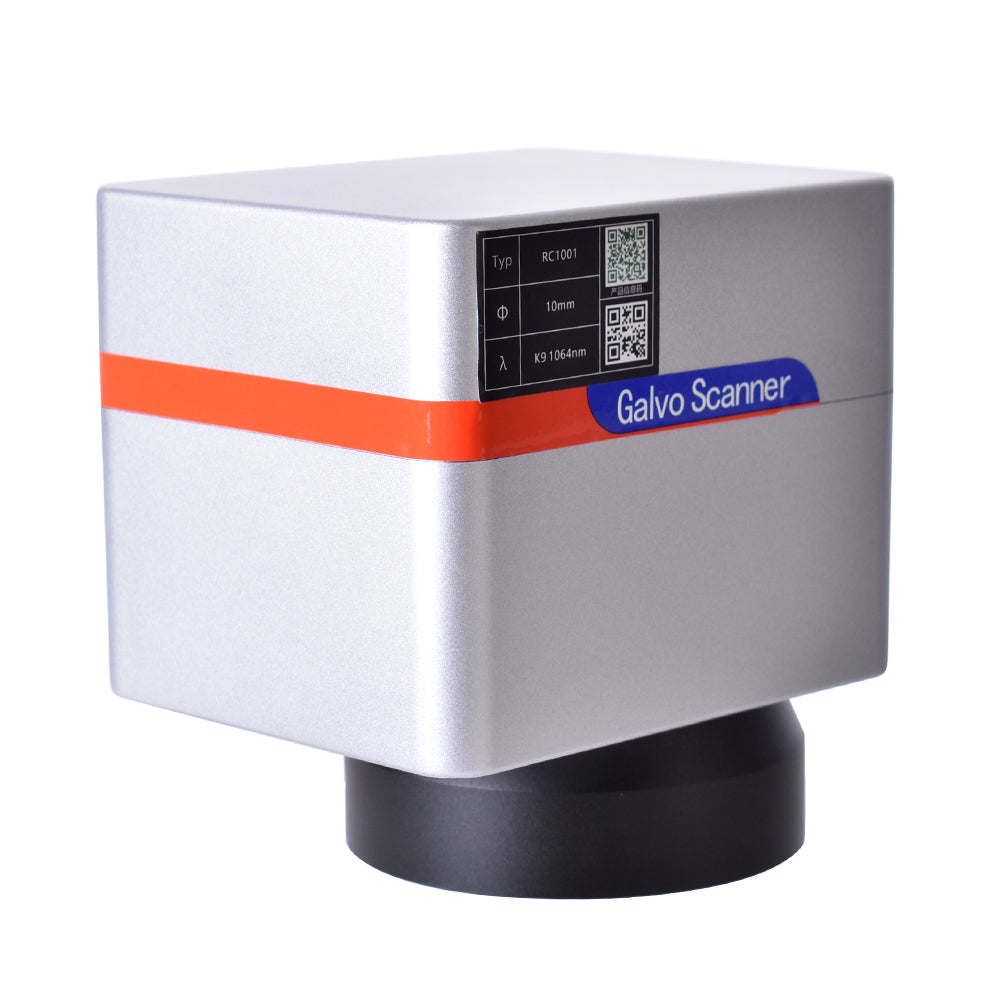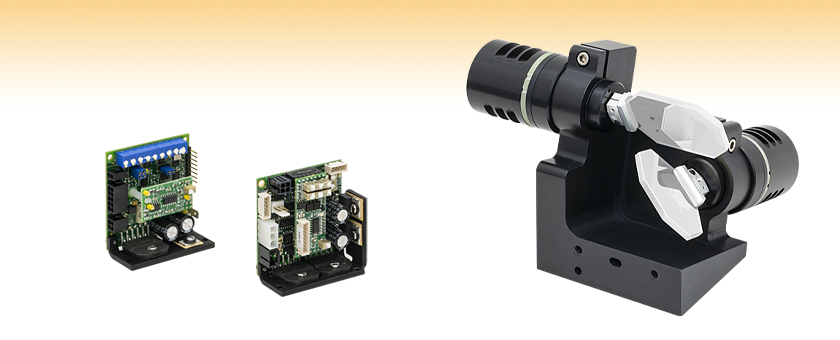Just How a Galvanometer Scanner Enhances Performance in Laser Scanning Technologies
The integration of galvanometer scanners in laser scanning modern technologies stands for a critical improvement in precision engineering. By promoting exact and fast changes of laser beam of light direction, these tools significantly boost functional efficiency throughout different applications, from clinical imaging to industrial engraving. The underlying electro-magnetic devices, paired with innovative comments systems, guarantee real-time control and improved precision. Nonetheless, as industries increasingly require greater performance requirements, the question emerges: what future technologies might further raise the capabilities of galvanometer scanners in this evolving landscape?
Comprehending Galvanometer Scanners
A galvanometer scanner is an advanced tool that leverages electro-magnetic concepts to attain exact angular activity of mirrors or other reflective surfaces. These scanners operate via the interaction of an electric present and an electromagnetic field, making it possible for precise and rapid placing. This technology is necessary in applications requiring high-speed scanning, such as laser engraving, optical interaction, and clinical imaging.

Galvanometer scanners are frequently identified by their rapid reaction times and high angular resolution, making them perfect for applications that demand quick movements and accurate positioning. Their dependability and performance make them a vital component in modern-day laser scanning technologies, contributing substantially to developments in different fields, consisting of manufacturing, health care, and telecommunications.
Device of Laser Beam Of Light Control

The control mechanism relies upon closed-loop feedback systems that continuously keep track of the light beam's setting. The signals from optical sensors give real-time data to the control system, enabling for rapid changes to preserve precision. This is essential in applications where even small deviations can endanger the top quality of the scan or etching.
Additionally, the galvanometer's response time is extremely important; high-speed electric motors enable swift movements, ensuring that the laser light beam can quickly map complex patterns or carry out elaborate operations. The assimilation of electronic signal handling better improves the responsiveness and accuracy of the galvanometer scanner. In general, the system of laser light beam control through galvanometer scanners exhibits the blend of advanced design and innovation, yielding high-performance outcomes in laser scanning applications.
Advantages of Boosted Precision
Boosted accuracy in laser scanning innovations offers significant advantages throughout different applications, from industrial manufacturing to clinical treatments. The assimilation of galvanometer scanners enables very precise beam of light positioning, which is essential for jobs requiring careful information. This boosted accuracy makes certain that the laser can target specific locations with marginal deviation, causing premium top best site quality outcomes.
In industrial contexts, specific laser scanning leads to improved product uniformity and lowered product waste. Parts manufactured with high precision are less most likely to require rework, thereby improving productivity and reducing operational expenses. Similarly, in medical applications, the accuracy of laser procedures can substantially influence patient results. In laser surgical procedure, exact targeting reduces damages to surrounding cells, leading to quicker recuperation times and less problems.
Additionally, boosted precision helps with innovative applications such as 3D imaging and microfabrication, where also minute inaccuracies can result in considerable mistakes. By offering reliable and repeatable laser positioning, galvanometer scanners add to the overall performance and effectiveness of laser systems. In summary, the benefits of enhanced precision not just enhance functional performance but also elevate the standards of high quality and safety and security in various sectors.
Applications in Various Industries
The adaptability of galvanometer scanners in laser scanning technologies prolongs across several industries, each gaining from the accuracy they supply. In the medical area, these scanners are critical in applications such as laser surgery and imaging, permitting extremely accurate targeting of tissues while decreasing damage to surrounding areas - galvanometer scanner. Their quick feedback and great resolution are essential in producing high-grade results
In the manufacturing sector, galvanometer scanners improve processes like laser inscription and cutting. Their ability to rapidly direct laser beams onto surface areas enables efficient assembly line, boosting speed and accuracy in developing elaborate designs or parts.
The auto sector also maximizes galvanometer technology for quality control and examinations (galvanometer scanner). By employing high-speed scanning, manufacturers can detect flaws in settings up or products, ensuring that items meet rigid standards
Additionally, in the home entertainment field, galvanometer scanners are utilized in laser light programs and screens, offering dynamic visual experiences with precise control over laser motions.
Future Trends in Laser Scanning
Emerging modern technologies are poised to change the landscape of laser scanning, with galvanometer scanners at the leading edge of this transformation. As sectors progressively require precision and efficiency, the evolution of galvanometer technology will certainly drive considerable developments in laser scanning applications.
Future trends suggest a growing assimilation of expert system and equipment learning formulas, which will certainly boost information refining capacities and automate decision-making in real-time. This harmony will permit extra sophisticated analysis of scanned information, causing improved precision in applications such as 3D Visit Your URL modeling and independent navigation.
Additionally, the miniaturization of components and the development of innovative products will add to lighter, extra portable laser scanning systems. This portability will certainly broaden the reach of laser scanning technologies right into formerly inaccessible environments, such as remote surface and elaborate architectural spaces.
The rise of enhanced fact (AR) and digital truth (VIRTUAL REALITY) applications will likewise shape the future of laser scanning. By incorporating galvanometer scanners with AR and VR, customers will certainly profit from immersive experiences that boost visualization and project preparation.
Verdict
Finally, galvanometer scanners play a critical function in optimizing laser scanning innovations with their exact control of light beam instructions and fast angular changes. The assimilation of advanced feedback systems and optical sensing units significantly improves functional rate and accuracy, resulting in enhanced outcomes in applications such as laser engraving and medical imaging. As markets significantly embrace these innovations, the ongoing advancements in galvanometer scanner layouts are anticipated to further elevate efficiency requirements and expand application possibilities.
The assimilation of galvanometer scanners in laser scanning technologies represents a pivotal improvement in accuracy engineering. In general, the device of laser light beam control via galvanometer scanners exemplifies the fusion of sophisticated design and modern technology, yielding high-performance results in laser scanning applications.
By giving dependable and repeatable laser positioning, galvanometer scanners add to the total performance and performance of laser systems.The flexibility of galvanometer scanners in laser scanning technologies expands across numerous industries, each benefiting from the accuracy More Info they supply.In verdict, galvanometer scanners play a crucial role in optimizing laser scanning technologies with their accurate control of light beam direction and fast angular changes.